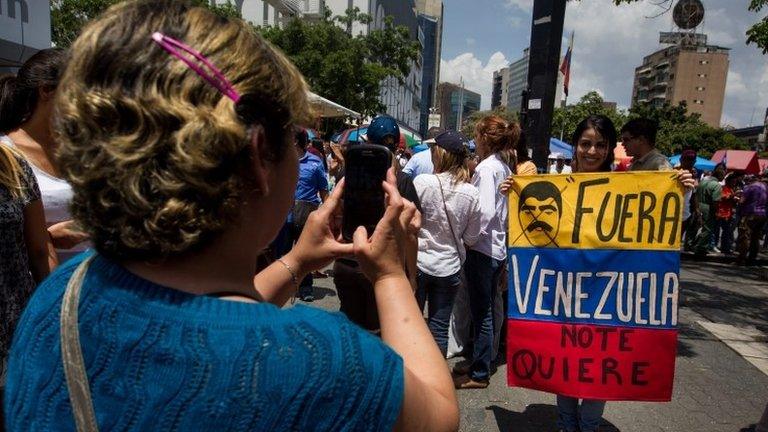Venezuela's President Maduro 'won't face recall referendum'
- Published
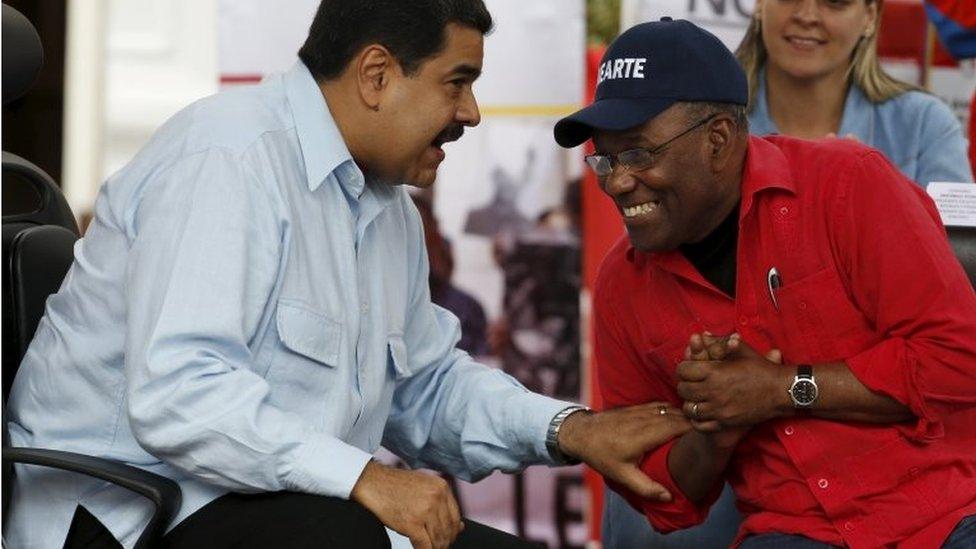
Vice-President Aristobulo Isturiz said President Maduro (left) would not be ousted by a referendum because "there will be no referendum"
Venezuela's Vice-President Aristobulo Isturiz has ruled out the possibility of a recall referendum being held against President Nicolas Maduro.
"Maduro won't be ousted by a referendum because there will be no referendum," Mr Isturiz said.
Opposition politicians began the process two weeks ago by handing in a petition signed by 1.85 million people.
Meanwhile, the government has published details of the state of emergency it declared on Friday.
It said the emergency would last for 60 days and could then be extended for another 60.
Mr Isturiz said the opposition had "acted too late" over the recall referendum, had "done it wrong and had committed fraud".
The opposition have previously warned the referendum may be hard to push through, as they alleged that the National Electoral Council (CNE) is staffed by government loyalists.
Many Venezuelans blame Mr Maduro for the economic crisis the country is experiencing.
Its economy contracted by 5.7% last year and is expected to shrink further this year. Inflation is at 180%, according to official figures, and there are shortages of medicines and basic food items.

Steps towards a recall referendum
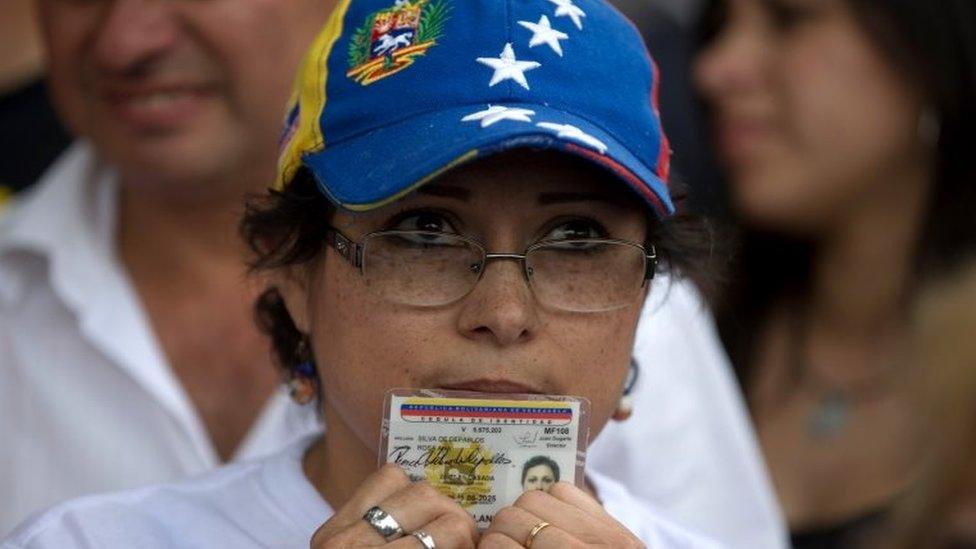
For the recall referendum to be successful almost 7.6 million people will have to vote to oust Mr Maduro
1% of voters on the electoral roll have to sign a petition within 30 days to kick-start the process
20% of voters (almost four million) have to sign a second petition in order to trigger the referendum on Mr Maduro
For the referendum to be successful, an equal or greater number of voters than those who elected Mr Maduro would have to cast their vote in favour of the recall. Mr Maduro won the 2013 election with 7,587,579 votes

On Friday, President Maduro declared a state of emergency to "denounce, neutralise and overcome the external and foreign aggressions against our country", which he blames for Venezuela's economic problems.
In measures published in the government gazette on Monday, the armed forces and local committees will now have powers to distribute and sell food.
Authorities will also be allowed to cut the working week in the private sector, as they have done in the public sector, to conserve electricity.
The new measures also allow the government to take control of basic goods or services, which analysts say opens the way to the expropriation of companies.
Timing is key
On 2 May, opposition politicians handed in 80 boxes containing 1.85 million signatures to the CNE, well above the 1% of voters on the electoral roll needed to kick-start the process.
Opposition politicians say the authorities are trying to stall the process and have called on their supporters to march to the offices of the CNE on Wednesday to demand they verify the signatures so the process can go ahead.
The timing of a potential recall referendum is key because the outcome could be radically different depending on when it is held.
Under Venezuela's constitution, if President Maduro were to be removed by a recall referendum in his last two years in office, he would be replaced by his Vice-President, Mr Isturiz.
But if Mr Maduro were to be recalled before that, new elections would be triggered.
The opposition sees it as essential to have new elections rather than have Mr Isturiz take power, as he is seen as a loyal member of Mr Maduro's Socialist Unity Party.
For new elections to be held, the recall referendum would have to go against Mr Maduro before 10 January 2017.
- Published12 May 2016
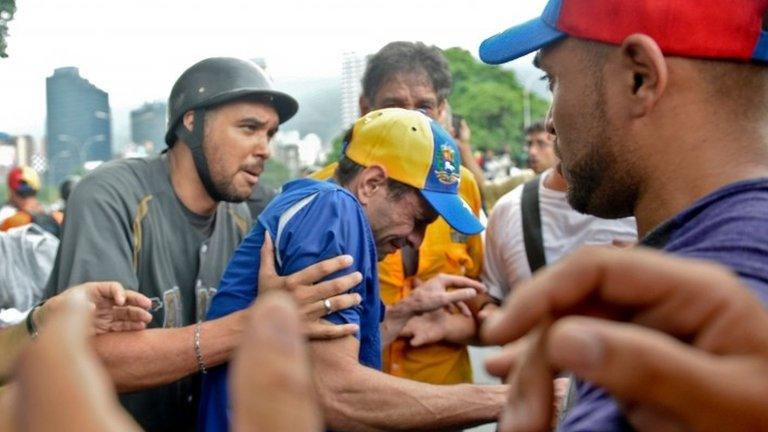
- Published2 May 2016
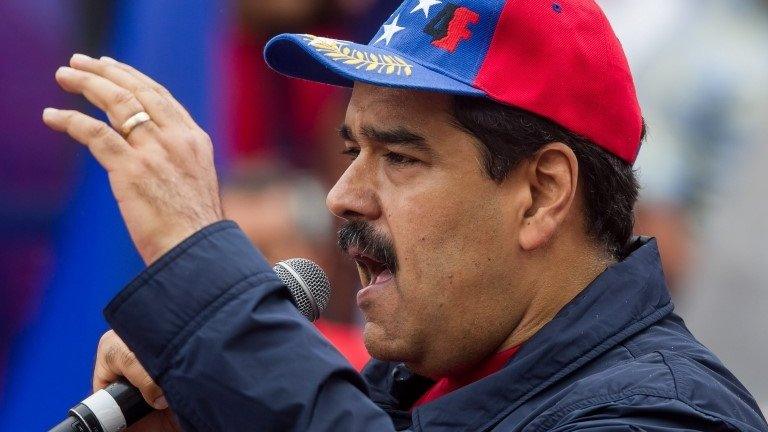
- Published28 April 2016
